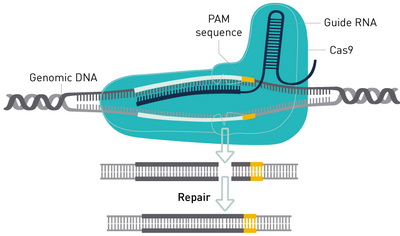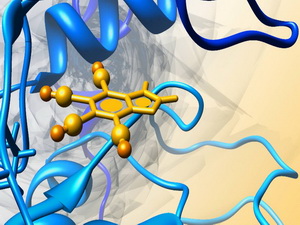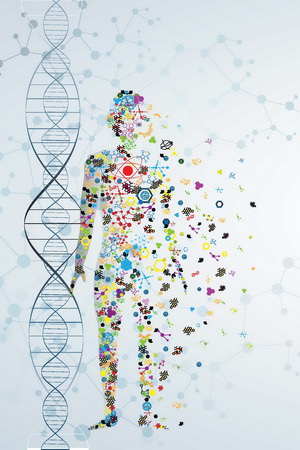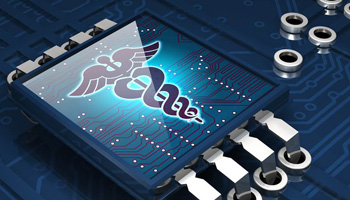The Future of Healthcare what it would be? There is a stressful time in our life, when we need to go to a hospital, where we (privately or publicly) pay a ton of money for a place that we hate to be.
Let’s question ourselves for a moment, is this the Future of Healthcare that we’re envisioning?
In the recent years you may have heard of companies like 23andMe that can provide your DNA analysis exploring your ancestry with just 99$, you may have heard the Precision Medicine Initiative of past president Barrack Obama or strange terms like EHR (Electronic Health Records), AAL (Ambient Assisted Living), personalized healthcare or you may already have purchase a smartwatch that measures your heart pulse.
The latest findings of science and more especially the CRISPR experiment showcase a small glimpse about the future of the healthcare. Diseases are usually mutations in your DNA. Instead of having a correct letter like T (representing Thymine) you have A (representing Adenine). These mutations may happen for various reasons like heredity, bad lifestyle or other physicochemical peculiarities. However the CRISPR experiment proved that you can focus in a specific part of the DNA sequence and correct what is wrong, curing the problem before it happens.
DNA. Instead of having a correct letter like T (representing Thymine) you have A (representing Adenine). These mutations may happen for various reasons like heredity, bad lifestyle or other physicochemical peculiarities. However the CRISPR experiment proved that you can focus in a specific part of the DNA sequence and correct what is wrong, curing the problem before it happens.
In another example in UK scientists already are testing personalized chemotherapy  mixtures based on the organism of each patient separately.
mixtures based on the organism of each patient separately.
While in other studies, instead of infusing new antibodies to an organism to improve its defense system, scientists try to increase the power and the population of the antibodies that already exist inside the organism.
We are moving towards precision & personalized medicine approaches where our organism will be the entire drug factory. The drug will be created within our organism  and will be unique for us and our specific problem. We will fight diseases with our own weapons having a small external kick.
and will be unique for us and our specific problem. We will fight diseases with our own weapons having a small external kick.
Until we achieve such “solutions” there are a series of other tools that we need to improve. While the latest technologies like cloud computing, big data manipulation, Internet-of-Things, have evolved rapidly; healthcare has been left outside the game and it still is a very slow-moving industry (due to also the huge (perhaps the word significant is better?) regulations as no mistakes are allowed).
McKinsey in a recent report concluded that if the US healthcare were using big data creatively and effectively to drive efficiency and quality, the sector could create more than $300 billion in value every year. Two-thirds of that would be in the form of reducing US healthcare expenditure by about 8 percent.
Electronic Health Records are not a new term, they are present for many years but there were used mostly as a simple bureaucratic digitalization of papers instead of harnessing a data analysis goldmine, for the benefit of patients.
Recently, the University of Pittsburgh Medical Center is investing $2 billion in three new hospitals being designed in collaboration with Microsoft to create especially personalized healthcare platforms.
In the past, Microsoft had developed in collaboration with Dartmouth – Hitchcock Hospital such a platform. However the bad strategy of building a platform entirely based on a company profile and not on actual personal patient needs, reinforces the risk of failure.

D-H chief executive James Weinstein said “Early results have been extremely positive, we’ve seen significant improvements in controlling hypertension, increases in physical activity, and better management of chronic illnesses such as diabetes. Early data suggest that user satisfaction is high and there have been noticeable improvements in the cost of care for participants.”
However, the decision to close the platform was announced about four months after Microsoft Corp. announced that it would discontinue its Band mobile fitness tracking device, while most D-H patient-participants were using it to gather health data. The platform had also other limitations like using voice recognition software in patient support which didn’t provide precise results when every second matters. In addition, in most cases existing EHRs don’t even provide insights about the patient’s DNA.
If you could only close your eyes for a while imagining a platform that will follow you from the first moments of your existence, preventing you from diseases, monitoring your vital indicators and acting proactively.
Things are moving towards a proactive, preventative, personalized healthcare and in DVK Consultants, we are designing such a platform with a vision:
- To prevent the hospitalization and reduce the patient costs per year.
- The identification of pre-diabetic, pre-hypertensive stages in order to act before it happens.
- The real-time analytics of monitored patients.
- The combinatorial use of fitness & healthier lifestyle initiatives for healthcare improvement.
- To assist physicians for better decisions based on data analysis & image processing.
- Education of patients about their diseases & life-style changes.
- To assist & detect mental illnesses.
- To provide anonymous data to third parties like universities, researchers for the benefit of healthcare.
- To find easier clinical trial drugs for late stage patients.
- To remind users what pill to take and what actions to make.
- To reduce the cost for private insurance companies.
- To improve the efficiency of hospitals.
- To lower the cost of healthcare for nations. In Holland and Singapore, healthcare funding has been decreased due the encouragement of patients to do annual check-ups.
- To reduce the costs of companies due to the illness of the personnel.
Every new solution has always dangerous corners that must be dealt with.

Finally, Cybersecurity related to Health Care should be taken seriously.
 In the past, more than 100 million individuals were affected by breaches due to hacking based on IDC Health Insights report.
In the past, more than 100 million individuals were affected by breaches due to hacking based on IDC Health Insights report.
Medical records are not to be leaked to unauthorized users.
A typical human may produce 1,100 TB of data during its lifetime and until now the 80% of the world’s healthcare data is unstructured.
DVK Consultants believes that technology can improve the quality & extend the span of life of all of us, providing win – win benefits for all. DVK Consultantss works with innovative and advanced Medical Teams to advance the new Medical technologies.
DVK Consultants is willing to share these technologies with Healthcare Related Companies or Organizations.

